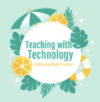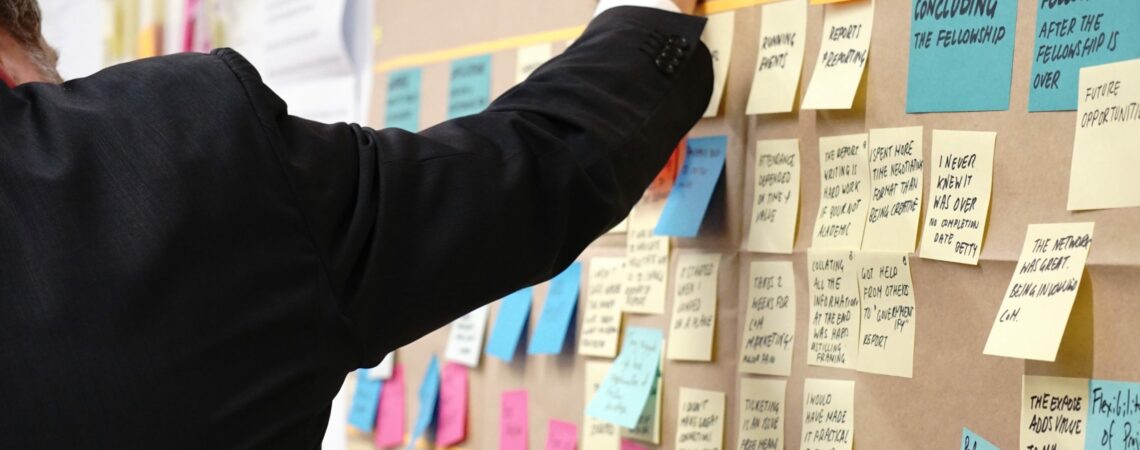Photo by Jo Szczepanska on Unsplash
Definition of Good Teaching
“The function of education is to teach one to think intensively and to think critically. Intelligence plus character–that is the goal of true education.” – Martin Luther King Junior.
Martin Luther King Jr.’s quote about the function of education resonates with me on a deep level. This quote underscores the holistic nature of education and the profound impact it can have on individuals and society as a whole. The first part of the quote, “The function of education is to teach one to think intensively and to think critically,” emphasizes the intellectual aspect of learning. It highlights the importance of cultivating a person’s ability to think deeply, analyze information, and develop problem-solving skills. This resonates with my belief that education should not be about memorizing facts and regurgitating them but rather about equipping individuals with the skills and knowledge to engage with the world in a meaningful and thoughtful way. The second part, “Intelligence plus character–that is the goal of true education,” underscores the significance of character development alongside intellectual growth. This aspect of the quote speaks to the idea that education is not solely about acquiring knowledge but also about developing values, ethics, and a strong moral compass. Through my own teaching experiences, I’ve come to understand that true education goes beyond academic achievements. It involves nurturing empathy, integrity, and social responsibility. I’ve adopted this definition of education because it aligns with a learner-centered and holistic approach to teaching and learning.
My Teaching Methods
My teaching methodology centres on a student-centric approach and encompasses key elements. It emphasizes engaging students in discussions, debates, problem-solving, and hands-on projects to promote participation and practical knowledge application. Recognizing diverse learning styles and paces, I customize instruction with a range of resources to suit individual preferences. Inspired by Martin Luther King Jr., I prioritize critical thinking by encouraging students to question, analyze, and evaluate information, with challenging assignments. Beyond academics, I integrate activities fostering character development, including ethical conduct, empathy, and social responsibility. I create opportunities for students to reflect on their learning experiences, offer constructive feedback, and encourage self-assessment and goal setting. I empower students with choices in assignments, nurturing responsibility and initiative. My teaching promotes inclusivity and fairness, addressing all students’ needs.
These principles extend to a professional context, with a mentoring approach, encouragement of professional development, ethical leadership, and promotion of diversity and inclusivity in the workplace.
Evaluation and Assessment
I incorporate evaluation and assessment methods that align with my definition of good teaching, emphasizing holistic growth involving intellectual and character development. These methods include:
1. Formative Assessment: Employing ongoing assessments like quizzes and discussions to foster active learning and critical thinking. Feedback from these assessments informs my teaching and encourages students’ critical thinking and active participation.
2. Project-Based and Case Study-Based Assessment: These assessments challenge students to apply knowledge collaboratively, develop problem-solving skills, network with industry experts, and practice ethical decision-making, promoting both intellectual and character development.
3. Discussion Forums and Reflective Practice: Discussion forums support student learning by promoting active engagement, critical thinking, collaboration, and communication. Participating in these forums encourages self-regulated learning and peer learning support. Students can receive feedback, reflect on their own and others’ contributions, and build a sense of community in online or blended learning environments.
4. Inclusive Assessment: My assessments are designed to accommodate diverse student backgrounds and abilities, promoting inclusivity, respect, and fairness within the learning environment.
An illustrative example is a project-based assignment requiring students to analyze real-world ethical dilemmas, fostering intensive, critical, and ethical thinking while promoting teamwork, problem-solving, and empathy, in line with my teaching philosophy.In my professional role, I use similar reflective practices, digital pulse surveys, and peer discussions to continually improve my leadership skills, maintain an ethical foundation, and seek feedback from colleagues for ongoing growth.
Learning Goals and Challenges
As a university instructor specializing in leadership and entrepreneurship courses within both undergraduate and MBA programs, my students are a diverse group with distinct learning goals and challenges. To effectively meet their needs and align with my definition of good teaching, I’ve developed a teaching style that caters to their specific characteristics and aspirations.
Undergraduate Students:
Learning Goals:
1. Foundational Knowledge
2. Skill Development
3. Career Preparation
Challenges:
Undergraduates typically have limited real-world experience, which can pose challenges in applying theoretical concepts to practical situations. They often juggle coursework with part-time jobs and extracurricular activities, making time management crucial.
How My Teaching Style Serves Undergraduates:
I incorporate hands-on activities, poster presentations, video tutorials, and group projects to make contents more accessible to students. I also provide additional support and guidance for academic writing, networking opportunities, and resume building.
MBA Students:
Learning Goals:
1. Advanced Knowledge
2. Leadership Development for high-level management and executive positions.
3. Venture Creation
Challenges:
MBA cohorts often consist of professionals with diverse backgrounds, which can lead to varying levels of expertise. Balancing work, family, and academic responsibilities can be challenging for MBA students.
How My Teaching Style Serves MBAs:
I offer advanced content and case studies to cater to their higher level of knowledge. In addition, I emphasize experiential learning through simulations, practical projects, site visits, and guest lectures. Recognizing the demands on their time, I provide flexibility in assignment deadlines and course materials.
My definition of good teaching, rooted in holistic development encompassing intellectual and character growth, is tailored to the unique characteristics and goals of both undergraduate and MBA students. It aligns with their objectives, whether they are seeking foundational knowledge or advanced expertise in leadership and entrepreneurship. I aim to inspire critical thinking, ethical behavior, and practical skills that are essential for their future careers and ventures, thus reflecting the needs and aspirations of this student population.
My Teaching Goals
My teaching philosophy is indeed a living document, and I acknowledge that there is always room for growth and improvement. In the future, I aspire to further embrace technology in education, create more inclusive learning environments, and seek opportunities for interdisciplinary teaching that can provide students with a broader perspective. For improving my own teaching, my goals include:
1. Continuously enhancing my knowledge and teaching strategies to stay updated with the latest educational trends and best practices.
2. Exploring innovative teaching methods and technology to create dynamic and engaging learning experiences for students.
3. Developing more refined and comprehensive assessment methods that provide valuable feedback and encourage deeper learning.
4. Ensuring that my teaching remains student-centric, adapting to different learning styles and preferences.
5. Regularly seeking feedback from students and peers to reflect on and refine my teaching practices.
6. Expanding my role as a mentor, guiding students not only in their academic pursuits but also in their personal and character development.
The role of an university instructor can break down gender barriers that will pave the way toward finding new solutions from a balanced perspective. Women leaders spend a lot of time caring for and coaching their teams. Therefore, to me, the role of an instructor is an advancement of women in leadership and a transformational role model to other women.
When a student leaves my classroom I hope they depart with a robust grasp of the subject matter, ready to wield their knowledge in real-world scenarios. Critical thinking should be second nature, enabling them to challenge assumptions, dissect information, and master complex problem-solving. Proficiency in written and verbal communication is a must, as clarity is integral to success in any field. They should also be adept team players, valuing diverse perspectives and contributing positively to group dynamics. Ethics, empathy, and social responsibility should form the bedrock of their character. These are the ideals I passionately strive to instil in every student.
As I reflect upon this journey, the words of William Butler Yeats come to mind: “Education is not the filling of a pail, but the lighting of a fire.” To me, teaching is not merely the transmission of facts; it’s the ignition of a lifelong passion for learning, growth, and understanding. It’s the spark that illuminates the path to a brighter and more compassionate future, both for the teacher and the students.

